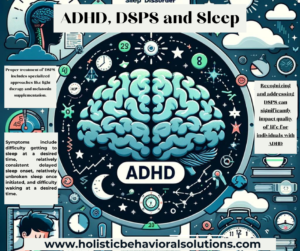
Mastering Stress Management: Strategies for a Balanced Life
Navigating the Tides of Stress in Modern Life
In the fast-paced rhythm of contemporary life, stress has become a constant companion for many. While a certain level of stress can be motivating, excessive stress can overwhelm our mental, emotional, and physical health, leading to a host of challenges. Understanding stress and adopting effective management strategies is crucial for maintaining balance and enhancing overall well-being. It may appear that stress in your life is the inevitable price of life, but we can reframe the way we see and feel stress.
A bit of stress is good, and it allows us to feel motivated and stimulated if our resources are in balance. However, if our resources are taxed and we are feeling “emotionally thin,” stress can exacerbate an already difficult situation and cause us to move into “fight or flight” mode.
Understanding Fight or Flight: Stress and the Path to Therapy
The “fight or flight” response is our body’s primal reaction to perceived threats, preparing us to either confront or flee from danger. While this response was crucial for our ancestors’ survival, modern stressors can trigger the same reaction, leading to chronic stress that affects our mental and physical well-being. Chronic activation of this response can result in anxiety, fatigue, and a host of other health issues.
Therapy offers a safe space to explore and understand these stress responses, providing strategies to manage them effectively. By learning coping mechanisms, relaxation techniques, and mindfulness practices, therapy can help recalibrate our body’s reaction to stress, guiding us toward a more balanced and healthier state of being. Embracing therapy is a step towards mastering our stress responses and reclaiming a sense of peace and control in our lives.
Understanding Stress: More Than Just Feeling Overwhelmed
Stress is the body’s natural response to demands and challenges. However, when stress becomes chronic, it can disrupt our lives, affecting our health, productivity, relationships, and happiness. Recognizing the signs of stress is the first step towards managing it effectively.
Transformative Stress Management Techniques
Mindfulness and Meditation: Incorporating mindfulness practices and meditation into your daily routine can significantly reduce stress levels. These techniques help in focusing on the present moment, calming the mind, and reducing anxiety.
Physical Activity: Regular exercise is a powerful stress reliever. Whether it’s a brisk walk, a yoga session, or a workout at the gym, physical activity releases endorphins, the body’s natural mood elevators, helping to alleviate stress.
Balanced Nutrition: A nutritious diet plays a vital role in stress management. Foods rich in vitamins, minerals, and antioxidants can boost your body’s resilience to stress, while reducing the consumption of stimulants like caffeine and sugar can help in maintaining calm.
Quality Sleep: Adequate and restful sleep is essential for stress management. Establishing a regular sleep routine and creating a conducive sleep environment can improve sleep quality, leaving you more resilient to daily stressors.
Time Management: Effective time management can significantly reduce stress by preventing overcommitment and allowing for regular breaks. Prioritizing tasks and setting realistic goals can help in managing your time more efficiently.
Social Support: Building a strong social support network is crucial for stress relief. Sharing your experiences with friends, family, or support groups can provide comfort, advice, and a different perspective on stressful situations.

Building Long-Term Resilience
Developing Coping Strategies: Identifying and cultivating personal coping strategies that work for you is essential for long-term stress management. This might include creative outlets, hobbies, or spending time in nature.
Setting Boundaries: Learning to say no and setting clear boundaries in both personal and professional life can prevent stress from accumulating. Understanding your limits and communicating them effectively can help in maintaining a healthy balance.
Seeking Professional Help: If stress becomes overwhelming, seeking the assistance of a mental health professional can provide the tools and support needed to manage stress effectively. Therapy and counseling offer personalized strategies to cope with stress and its underlying causes.
Embrace a Life of Balance and Calm
Managing stress is not about eliminating stressors but about learning to respond to them in healthier ways. By integrating these stress management techniques into your life, you can reduce the impact of stress, enhance your resilience, and embrace a more balanced and fulfilling life.
Take Control of Your Stress: Remember, stress management is a personal journey that requires patience and practice. Start small, incorporate stress-reducing practices into your daily routine, and gradually build a life where stress no longer holds the reins. Explore our resources and guides to embark on your path to a less stressful, more balanced existence.
Stress Management and The Holistic Store
While we are thinking that through, boost your connection from the inside out with our wellness supplements and supplies, check out our store for products that help you feel your best, making it easier to open up and connect on a deeper level.


